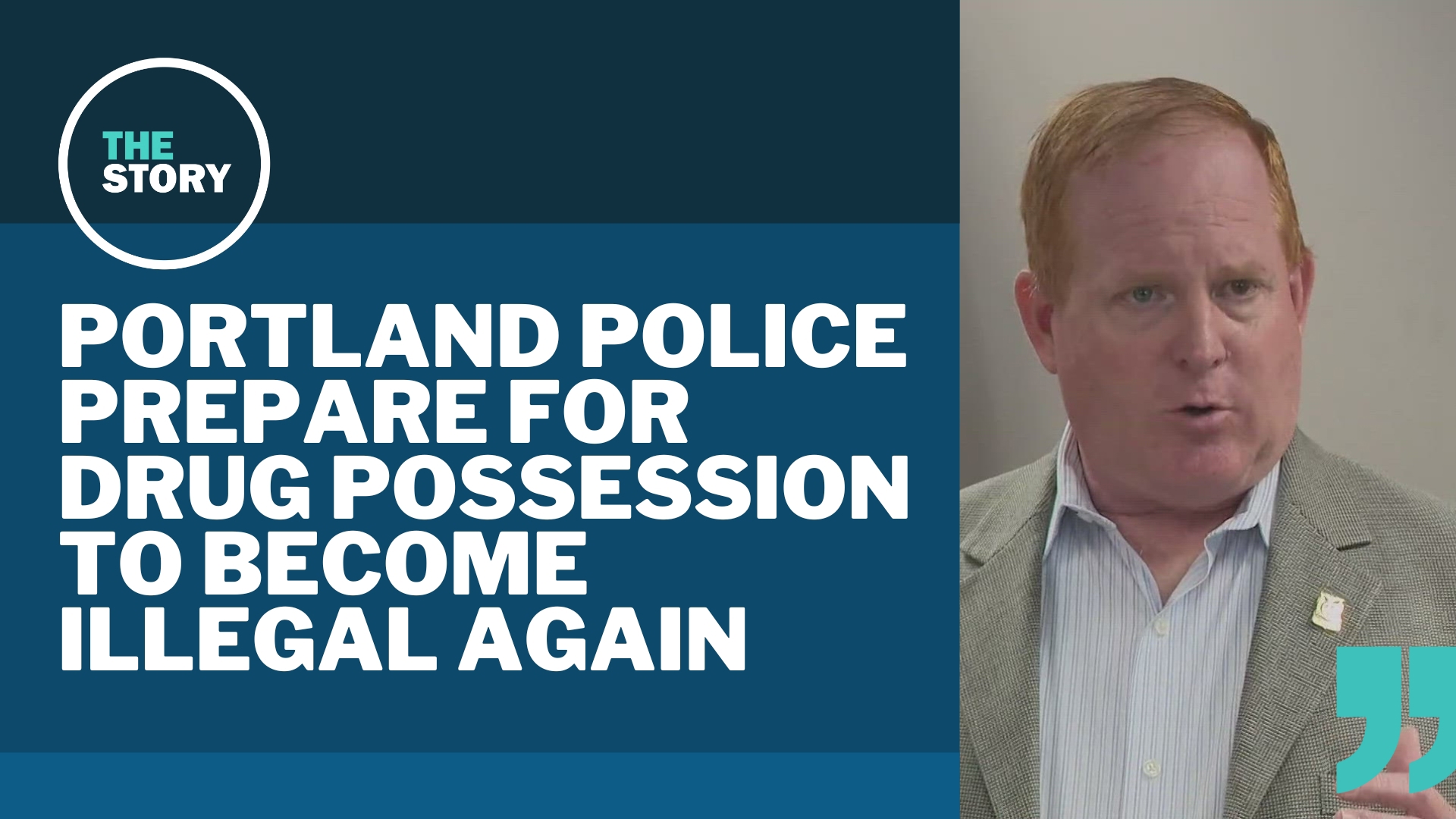PORTLAND, Ore. — As of Sept. 1, possession of hard drugs is a crime again in Oregon, and talks are ongoing as to how that will be enforced in downtown Portland. People addicted to drugs on the streets are bracing for what they’re anticipating will be a “culture shock,” as Portland police officers prepare to partner with addiction specialists to bring recovery services to the streets — walking a fine line between public safety and health care.
“And right now, since there is not a location to take people to, we’ll get on the phone, and we’ll call the deflection coordinator,” said Portland Police Chief Bob Day.
That’s when the team at 4D Recovery comes in.
“They’re going to call us and we’re going to send over a person in recovery, a peer like me, to try and talk to the person about entering treatment, stopping using drugs, starting the road to recovery,” said Tony Vezina, who has lived experience with addiction and is the executive director of 4D Recovery.
4D Recovery will have three to five peers doing this across Multnomah County, and others in Clackamas and Washington counties. There will be peers from other recovery groups doing the same. Portland police will wait 30 minutes for them to show up before taking that person to jail.
“My preference was 15 minutes, but I think 30 minutes is more practical, which means this person will remain in custody in handcuffs or in a police car until the behavioral health specialist arrives,” Day explained.
Once the peer support specialist arrives, police will leave and the person using drugs will have 30 days to engage in recovery services. If caught again within the next 30 days, they will go straight to jail. Police will rely on the county to keep track of that data.
“If I had to choose, I think it’s good that’s what we get, if we’re doing treatment over jail if that’s what we can get,” said Nick who is homeless and smokes fentanyl on the corner of Southwest 12th and Morrison, the latest hot spot for drug use and dealing downtown, according to Portland police.
Last week, throughout Portland's downtown, Northwest District and the Goose Hollow Neighborhood, officers made several arrests and issued numerous citations. The week's total seizure amounted to 350.22 grams of fentanyl and $1,304 in cash, according to Portland police data.
Come Sunday, Nick explained he is preparing to be more “discreet” with his drug use, so he doesn’t get caught.
“If you are covering yourself when you’re doing whatever you’re doing, then it’s pretty much as if you can’t see it then it’s not happening … I cover myself with a blanket or a jacket or a tent or whatever,” Nick said.
“I didn’t realize addiction followed those hours,” said Anna, who is homeless and addicted to methamphetamine. “You can’t force somebody to quit something they feel needs to be a part of their life."
“There is certainly a lack of equity in that,” Chief Day said of the limited hours for deflection. “I would argue that it’s not necessarily uncommon. I’m not saying it’s right … This is going to be a work in progress. This takes off on Sunday and it’s going to be a work in progress."
Given the work in progress, Day is expecting to make changes to how officers respond as soon as next week. While the hours will be Monday through Friday, there will be peer support specialists available from 10 a.m. to 5 p.m. Sunday and Monday over the holiday weekend as this kicks off.

